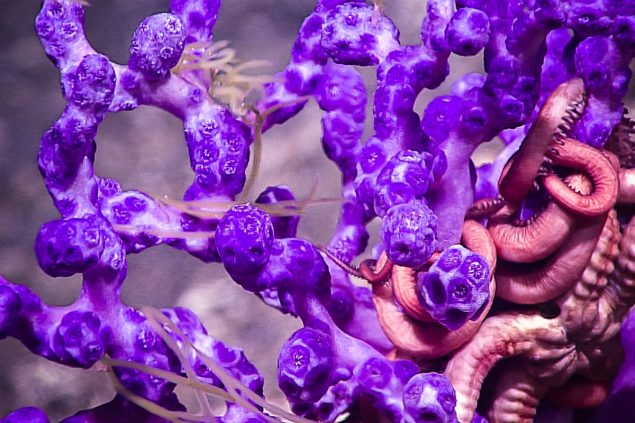To accomplish our mission, the Foundation is forming strategic partnerships with institutions and organizations that share our core values and have the capabilities or expertise that can assist us in reaching our goals.
Montana State University
In 2014, the Foundation formalized a Memorandum of Understanding (MOU) with Montana State University in Bozeman, Montana. This MOU was key to achieving the Foundation’s mission because of the University’s Master’s Program in Science and Natural History Filmmaking. The program trains scientists to become world-class filmmakers and video storytellers. The MOU between the University and the Foundation provides the program’s students and graduates with unique opportunities to apply their skills and tell stories not often heard.
National Oceanic and Atmospheric Administration
In 2013, the Foundation formalized a Memorandum of Understanding (MOU) with the National Oceanic and Atmospheric Administration (NOAA). Through this MOU, the Foundation works closely with the country’s only dedicated ocean exploration platform, the NOAA Ship Okeanos Explorer. The vessel, with her state-of-the-art ocean mapping systems and remotely operated vehicles Seirios and Deep Discoverer, is an ideal and proven platform for conducting ocean exploration. In addition to the vessel, the Foundation’s MOU with NOAA provides access to a shore-based facility in Rhode Island for the design, development, and maintenance of exploration equipment. Many of the Foundation’s core team were also part of the team that developed the vessel and the vehicles. Our intimate understanding of this exploration platform makes us uniquely poised to leverage this capital investment by the federal government.
University of New Hampshire Center for Coastal and Ocean Mapping/Joint Hydrographic Center (CCOM/JHC)
CCOM/JHC was founded in 1999 with two main objectives: to develop tools to advance ocean mapping and hydrography, and to train the next generation of hydrographers and ocean mappers. The JHC is a formal cooperative partnership between the University of New Hampshire and the National Oceanic and Atmospheric Administration (NOAA) whose aim is to create a national center for expertise in ocean mapping and hydrographic sciences. CCOM, a complementary university center, expands the scope of ocean mapping interaction and collaboration with the private sector, other government agencies, and other universities. GFOE is collaborating on sensor design and development, as well as advanced visualization techniques in the areas of photogrammetry and photo mosaicing.
University of Hawaii at Manoa – Field Robotics Laboratory
The aim of the Field Robotics Laboratory (FRL) is to create innovative tools which expand the ability of ocean science to explore, understand and protect the marine environment. To accomplish this, the lab pursues projects focused on autonomous vehicles, underwater navigation, and instrumentation applied to the ocean environment. The ultimate goal of this work is to deploy these systems in the field to do new science. FRL staff participate in oceanographic expeditions around the world through ongoing collaborations with a variety of scientific organizations. GFOE offers students from the FRL and the University’s Engineering program opportunities to participate in offshore operations, and to work on the development and testing of ROV control software.
Baruch College
Baruch College in New York City is ranked among the region’s and nation’s top colleges by U.S. News & World Report, Forbes, Princeton Review, and others. The College’s more than 17,000 students, who speak more than 110 languages and trace their heritage to more than 170 countries, have been repeatedly named one of the most ethnically diverse student bodies in the United States. GFOE is working with Baruch College to design and establish an Ocean Exploration Command Center, which will give staff, students and other associates access to real time ocean exploration.
Northeastern University
The Ocean Genome Legacy at Northeastern University is a non-profit marine research institute and genome bank dedicated to exploring and preserving the threatened biological diversity of the sea. The purpose of their collection of DNA blueprints (genomes) is to provide secure storage and broad public access to genomic materials, to create a forum for sharing samples, data and ideas, and to serve as a catalyst for research that can help to protect marine ecosystems and improve the human condition. GFOE is working with Northeastern University to develop a biorepository for DNA samples from marine organisms, and is also developing a training program for young scientists that focuses on sampling protocols and laboratory operations while at sea.


